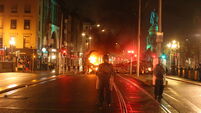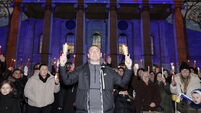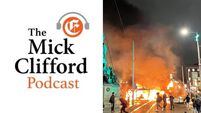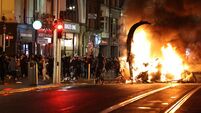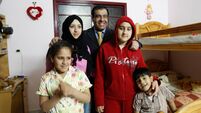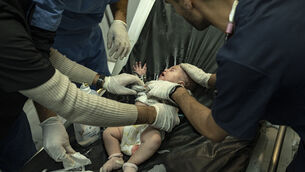Gareth O'Callaghan: There is a growing level of hatred never seen here before

Ever since covid's early days, far-right groomers have been using online techniques, aimed at those who are mostly young and disillusioned, lone actors who feel they have little if any purpose because they believe they are victims of social deprivation.
Are we losing what it means to be human? I'd argue that we are and it's a problem for this generation that's accelerating faster than climate change.
Humanity is what makes us human, decent, and different, setting us apart from other species.
Its rarity in recent times is very worrying. Without it, people become self-centered and indifferent towards the suffering of others.
It’s the one quality that stops us from behaving like feral animals, as we witnessed recently.
It’s 10 days since three schoolchildren and their creche teacher were stabbed in Dublin. A five-year-old girl remains in a critical condition this weekend, with fears for her survival. Her creche teacher also remains critical.
People were led to believe that this shocking incident caused the rioting that same evening. Yes, it was the tipping point, but the destruction late into Thursday night, in which a number of gardaí were also injured, was simply an excuse that a bunch of online agitators had wanted to kick off for a long time — but they needed an excuse. And this was one of the most damning.
Things happen because something prompted them to happen. A cause is why something happens, an effect is what happened. School children and their teacher are attacked and stabbed by an immigrant who has lived here for years. Hours later, violent thugs are trying to burn Dublin city centre to the ground.
Ireland has been pitched on a knife-edge for a long time, long before the stabbings and riots in Dublin. There’s been a simmering hostility, a growing resentment towards many aspects of life here that people feel intolerant about.
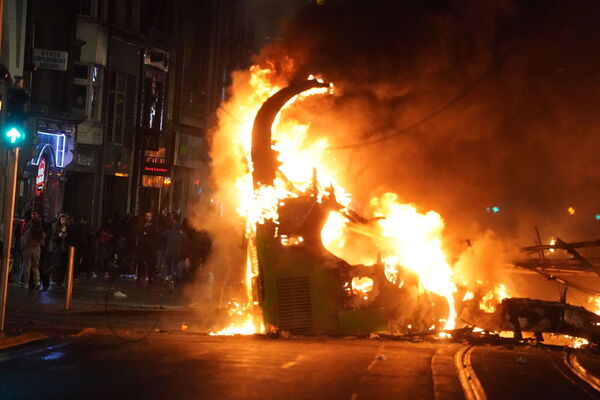
There is also a growing level of hatred never seen before. It's being fed by far right groups just waiting for another catalyst, grotesque enough to light a bigger fuse in the public imagination.
Ten days ago, they took to their social media platforms and, in an effort to stir up brutality, they published lies and caused carnage.
If you take a look at some of their websites, they’re smooth talkers, well turned out in their Sunday best, but the tone becomes darker if you listen to their directives and their blatherings on platforms such as Telegram or X, formerly known as Twitter.
But what is their cause? Radicalisation and division are their primary objectives. Ever since covid's early days, far-right groomers have been using online techniques, aimed at those who are mostly young and disillusioned, lone actors who feel they have little if any purpose because they believe they are victims of social deprivation through no fault of their own.
They internalise extremist beliefs that they’re told mirror their own personal view of a world they’re convinced is being taken away from them by others.
And they have the internet and social media — the perfect tools to spread their hate.
Anglo-Algerian author Mouloud Benzadi once said: “Kill extremists and more extremists will appear. Kill extremist ideology and extremism will disappear.”
A new bill updating Ireland’s laws on hate crime and hate speech has been approved by government and is currently making its way through the Seanad.
One serious concern is the absence of a definition of the word ‘hate’ or ‘hatred’, while there are also concerns that it will restrict free speech.
Freedom of expression has been a guaranteed right since the foundation of the State. Article 40.6.1 of Bunreacht na hÉireann protects "the right of the citizens to express freely their convictions and opinions".
Senator Eileen Flynn, a member of the Irish Travelling community who broadly supports the Bill, told RTE's recently that her definition of hatred is “attacking a person because of who they are”.
In his book, , law professor and psychologist Gregory S Parks said that hate is more than just a feeling, it’s a complex behaviour. He explores who haters are, what drives them, and how to react to them.
Haters assassinate the character of those they envy, and they play an active role in doing as much harm as possible to the object of their hate, even asking others to participate in this harm. These followers are referred to in Parks’s book as “flying monkeys” — a term that comes from the film , in which flying monkeys do the nasty work of the Wicked Witch of the West.
But we can't let the haters win. Dublin’s once-solid welcoming spirit is broken following the violence of 23/11. Is it gone forever? Only time will tell.
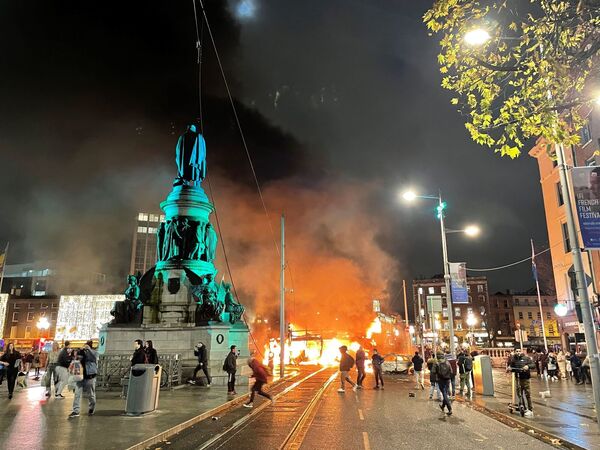
I walked through its streets the day after, an acrid smell from the black smoke that hung motionless in the air, a burnt-out Luas not far from three buses that had been attacked and destroyed, their drivers lucky to be alive.
A quarter of our workforce is made up of people who have come here to live and work from other countries. Health, retail, transport, hospitality... if they all left tomorrow, the country would collapse. But why would they leave? They are as entitled to live here as anyone else.
I met a Nigerian theatre nurse on her way to work the morning after the riots.
She was terrified. Her hands were shaking, her eyes tired from crying.
“This has been my home for almost 20 years,” she said, sounding as though it might now no longer be her home.
As I said goodbye to her, I thought of the extremists who had called to action a gang of flying monkeys who burned and looted while some of their influencers watched the violence on from the safety of their comfortable homes.
We have to draw a line in the sand because if we allow hatred to fester, then we are killing humanity.
And we'll only have ourselves to blame.

